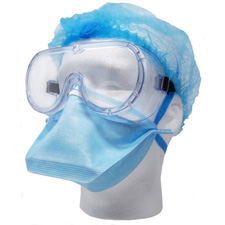| The Home page of ILPI's Safety Data Sheet (SDS) Resource, the leader in SDS information since 1995! | |
| The history and philosophy behind this resource. | |
| A curated collection of books and reference materials concerning Safety Data Sheets and closely related topics. | |
| Paste your plain text SDS into the SDS-Demystifier, and it will be converted into a hypertext-enriched document with links to detailed explanations of each key term. | |
| An extensive list of frequently asked questions about Safety Data Sheets including regulations, content, compliance, and more. | |
| A humorous take on Safety Data Sheet jargon. Fill in the blanks on our entry form to generate a personalized Unsafety Data Sheet to share with your coworkers. | |
| Since 1995, we've maintained this massive curated list of the best places to find Safety Data Sheets on the Internet. | |
| You are here! Way more than a glossary, this hypertext-enhanced resource covers hundreds of SDS-related terms and expert knowledge. Each entry includes both the SDS relevance and links to additional authoritative resources. | |
| Archived results of Safety Data Sheet related polls taken by some of our millions of site visitors | |
| The OSHA regulations behind SDS regulations, including the inspection guidelines and over 400 official interpretations letters under the Hazard Communication Standard | |
| Commercial suppliers of SDS authoring and management software as well as cloud compliance services. | |
| Commercial companies that will create SDS's for your specific needs as well as SDS translation companies. |

Safety signs, banners, and scoreboards? Get yours at Safety Emporium!
Definition
Urticaria is also called nettle rash or hives. Urticaria is a temporary skin condition often due to an allergic reaction and is characterized by an elevated patch of skin (reddish or pale) and/or pimples and wheals accompanied by burning, stinging, or severe itching sensation.
Additional Info
Hives can often be treated with an antihistamine such as Benadryl (trademark name for diphenhydramine). In rare cases, airway obstruction or anaphylactic shock (system-wide allergic response) could occur, requiring immediate medical intervention.
Hives can be caused by many agents, and in many cases the exact cause is not known. The red welt most of us get following a bee sting is probably the most familiar example of a hive.
There are many homeopathic "remedy" sites on the Internet which claim to solve all sorts of health conditions, especially hives, using mixtures that contain no active ingredients whatsoever. Make no mistake, the term "homeopathic remedy" is an oxymoron and the promoters of homeopathy are simply quacks or charlatans who prey on human foibles. Some may swear by their homeopathic "cure" for hives, but the fact is that hives commonly go away with no treatment at all.
SDS Relevance

Protect your yourself with US-manufactured NIOSH-approved N95 surgical respirators and more from Safety Emporium.
Urticaria can be a symptom of exposure to certain chemicals. Section 11 (toxicological information) of your Safety Data Sheet will alert you if hives are a known symptom of exposure. Section 8 (exposure controls/personal protection) explains how to avoid exposure, and Section 4 (first-aid measures) explains what to do if you develop symptoms. Should you experience an outbreak of hives, use the listed precautions to make sure you are not further exposed to the material and see if the condition improves.
Further Reading
- Chronic hives at the Mayo Clinic.
- Hives (Urticaria & Angioedema), a multipage resource at MedicineNet.com.
- Papular Urticaria at healthline.
- Chronic hives - a guide for sufferers by Allergy Web.
See also: eczema, erythema, sensitizer.